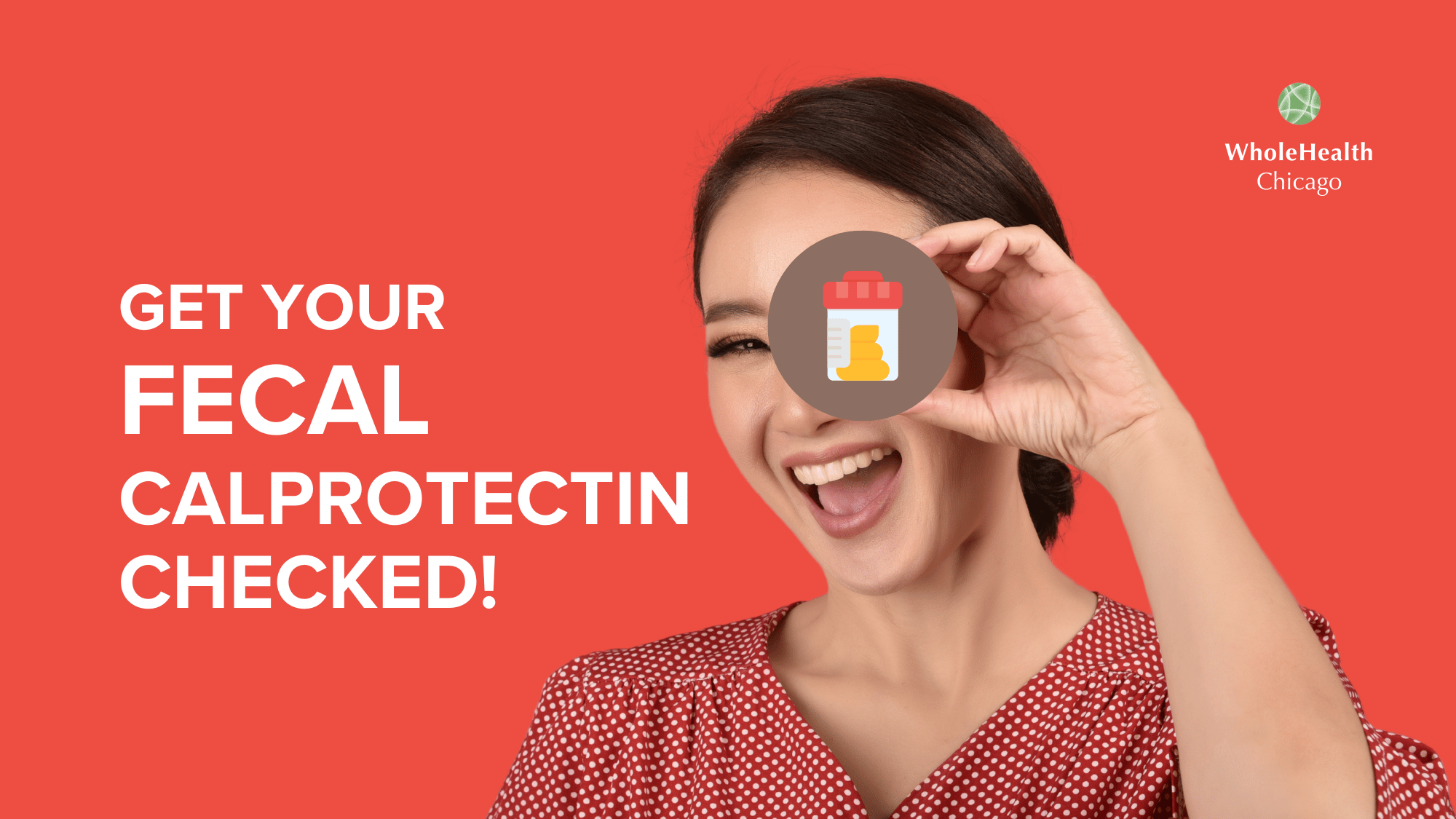Fecal calprotectin? Never heard of it, right?
A calprotectin stool test measures a protein called calprotectin in a sample of your stool (poop). It’s used to check for inflammation (swelling and irritation) in your small and large intestines.
It’s normal to have a small amount of calprotectin in your stool. But high levels are a sign that your intestines are inflamed. When you have inflammation in your intestines, your immune system sends certain types of white blood cells (neutrophils) to the inflamed area. These white blood cells release calprotectin into your intestines where it mixes with your stool.
This inflammation can cause watery or even bloody diarrhea and sometimes crampy abdominal pain that lasts for more than a few days. If this is the case, it’s important to know if your intestines are inflamed. That’s because inflammation can damage the lining of your intestines and over time lead to other health conditions like “leaky gut“.
Fortunately, most episodes of abdominal cramping and diarrhea are temporary events, related to stress and food sensitivities and not caused by inflammation. If you’ve had this for months (or years), you may have been told you have irritable bowel syndrome (IBS). Ready for this? It is estimated that 10-15% of Americans have IBS although only about 7% have actually been diagnosed with it. There is no inflammation of your intestines if you have IBS and therefore your fecal calprotectin level is NORMAL.
Usually symptoms of inflammatory bowel disease (IBD) are more severe with abdominal cramping, watery and even bloody diarrhea, fever, fatigue and weight loss. The two common conditions causing IBD are Crohn’s Disease and ulcerative colitis. Because inflammation is present with IBD your fecal calprotectin is HIGH.
Fecal calprotectin is not specific for IBD. It sometimes rises during an intestinal infection (like a parasite or bacteria) or from a polyp or even colon cancer.
THE MOST INTERESTING NEW DEVELOPMENTS WITH INFLAMMATORY BOWEL DISEASE CAME FROM INDIA, CHINA, AND ISRAEL.
First India:
India has always been known to have a lower rate of both colon cancer and ulcerative colitis than the rest of the world. This was initially attributed to their vegetarian diet (this may be a contributing factor), but more important is the widespread use of curcumin (curry) seasoning for just about everything. Curcumin is a potent anti-inflammatory agent and an antioxidant. A new form of curcumin (Curalieve) also crosses the blood-brain barrier and may explain the lower prevalence of Alzheimer’s Disease in India than in other countries
Second China:
Chinese herbs are very difficult for Western researchers to study because traditional Chinese medicines (TCM) contain multiple herbs in combination. One herb however has received special attention, Indigo naturalist, known in Chinese medicine as Qing dai, and actually found to work best for IBD when used in combination with Curcumin.
Third Israel:
Ashkenazi Jews suffer five times the rate of Crohn’s and ulcerative colitis then the non Jewish European population. Gastroenterologists at the Sheba Medical Center in Israel, considered one of the ten leading hospitals in the world, are very interested in research into these diseases. They developed a protocol using curcumin and Qing dai in combination. I first learned of these from a woman whose son had experienced a “remarkable” remission of his Crohn’s Disease after experiencing an adverse reaction from the conventionally used ‘biologics’. She herself had learned of it from her son’s gastroenterologist at an (unnamed) major medical center here in Chicago who could tell her about it but not prescribe it because it’s “not FDA approved and had not passed the hospital’s ‘Pharmacy Committee.’” The product itself is called CurQD and purchased directly from the manufacturer.
So, summary for today:
Persistent diarrhea> have your fecal calprotectin measured.
If elevated, get further testing for ulcerative colitis and/or Crohn’s.
If you have (or know someone with) either of these conditions, and are interested in the CurQD protocol, schedule with one of our practitioners at any of the WholeHealth Chicago Centers.
Be well,
David Edelberg, MD
P.S. Many older patients have been advised by their ophthalmologists to take a vitamin/mineral supplement called AREDS to slow down macular degeneration (MD). This is great but they should also add Curalieve (curcumin) one a day, which also slows down (MD).
